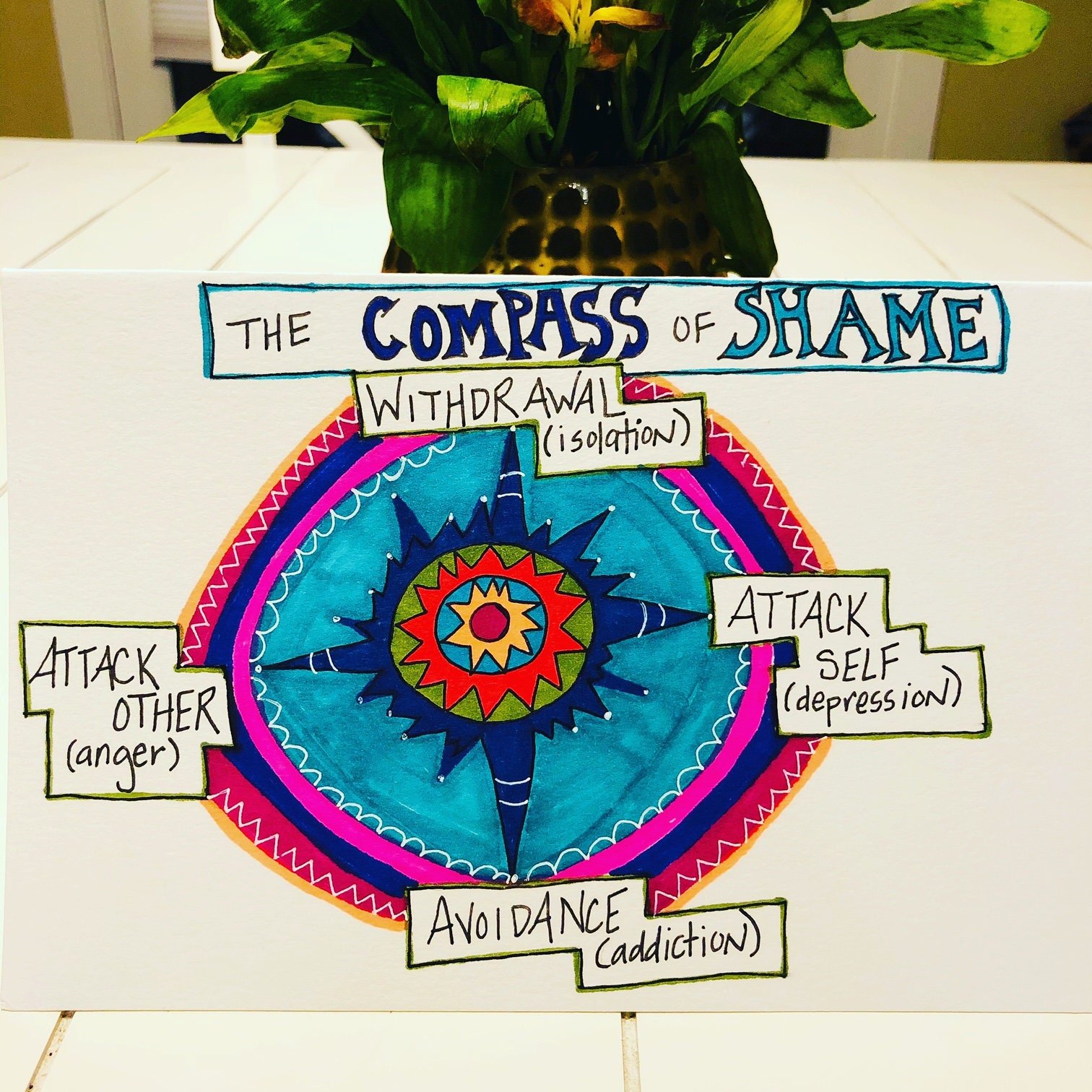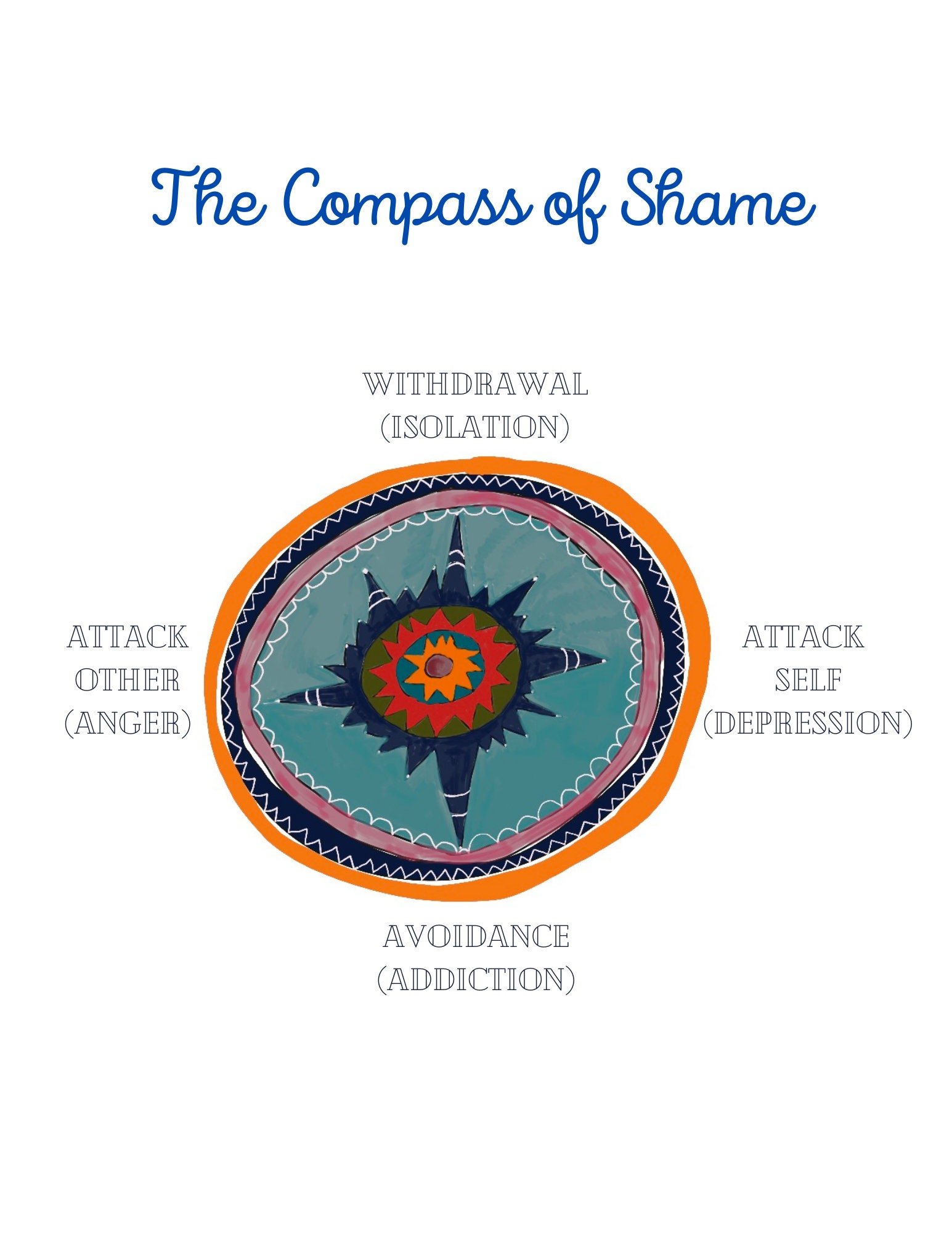 Image 1 of 3
Image 1 of 3

 Image 2 of 3
Image 2 of 3

 Image 3 of 3
Image 3 of 3




Compass of Shame Guide
These 2 worksheets (PDFs) show how one copes with or defends against feelings of shame.
~attacking self—self put-down, masochism
~withdrawal—Isolating oneself, running and hiding
~attacking others—Turning the tables, lashing out physically or adequately, blaming others
~avoidance/withdrawal—Denial, abusing drugs, distraction through thrill-seeking
Chronic shame seems to accompany Trauma. Bringing awareness to where you hang out and what happens when you feel shame is a great way to pivot away from old patterns. ❤️
These 2 worksheets (PDFs) show how one copes with or defends against feelings of shame.
~attacking self—self put-down, masochism
~withdrawal—Isolating oneself, running and hiding
~attacking others—Turning the tables, lashing out physically or adequately, blaming others
~avoidance/withdrawal—Denial, abusing drugs, distraction through thrill-seeking
Chronic shame seems to accompany Trauma. Bringing awareness to where you hang out and what happens when you feel shame is a great way to pivot away from old patterns. ❤️
These 2 worksheets (PDFs) show how one copes with or defends against feelings of shame.
~attacking self—self put-down, masochism
~withdrawal—Isolating oneself, running and hiding
~attacking others—Turning the tables, lashing out physically or adequately, blaming others
~avoidance/withdrawal—Denial, abusing drugs, distraction through thrill-seeking
Chronic shame seems to accompany Trauma. Bringing awareness to where you hang out and what happens when you feel shame is a great way to pivot away from old patterns. ❤️